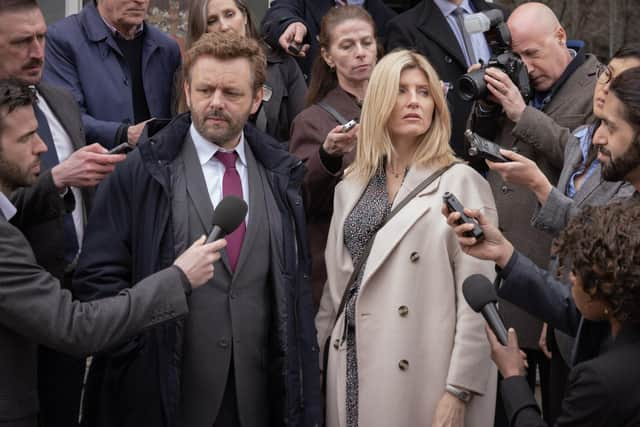TV Pick of the Week: Best Interests - Review by Yvette Huddleston
The first thing to say about this outstanding four-part drama from award-winning screenwriter Jack Thorne is that, at times, it makes for difficult viewing. At the heart of the narrative is a terrible dilemma and Thorne’s script explores it with great sensitivity and clarity, with no judgement.
Michael Sheen and Sharon Horgan play Andrew and Nicci whose younger daughter Marnie (Niamh Moriarty) was diagnosed with a rare form of muscular dystrophy as a baby. It is a life-limiting condition and Andrew and Nicci and their older daughter Katie (Alison Oliver) have always known that their time with their beloved Marnie may be short. Now a young teenager, Marnie is enjoying her life even while her health issues are becoming increasingly complex.
Advertisement
Hide AdAdvertisement
Hide AdWhen she is hospitalised for a chest infection, things deteriorate rapidly and their doctor, Samantha (Noma Dumezweni), who has been treating Marnie for several years tentatively begins a conversation with Andrew and Nicci about palliative care. Entirely understandably, Nicci is not ready to engage with that possibility as an option. But then Marnie suffers a seizure and a cardiac arrest which leaves her in a coma and brain-damaged and the advice of Samantha, backed by the hospital’s ethics committee, is that any further medical intervention would not be in Marnie’s best interests and could cause her more pain and harm.


It is at this point that Nicci decides to take legal advice to challenge the withdrawal of treatment for Marnie, to stop the hospital from, as she puts it, “letting her die.”
The first episode opens with Nicci and Andrew arriving at court separately and we then learn through flashback how the rift between them grew. Nicci regards her action as the continuation of a fight she has been involved in ever since Marnie was first diagnosed – for funding, support and recognition that her daughter’s life is as valuable as anyone else’s.
The narrative explores the effect on a marriage of caring for a severely disabled child, while also highlighting the experience of a sibling in that situation. Katie has become accustomed to the focus rarely being on her – there is no resentment, the sisters have a close, loving relationship, just an acceptance that her parents’ attention will invariably be on Marnie’s needs, not on hers. The performances from Sheen and particularly Horgan, in a rare dramatic role, are powerful, raw and utterly believable in their portrayal of the agony of the decision they are faced with.